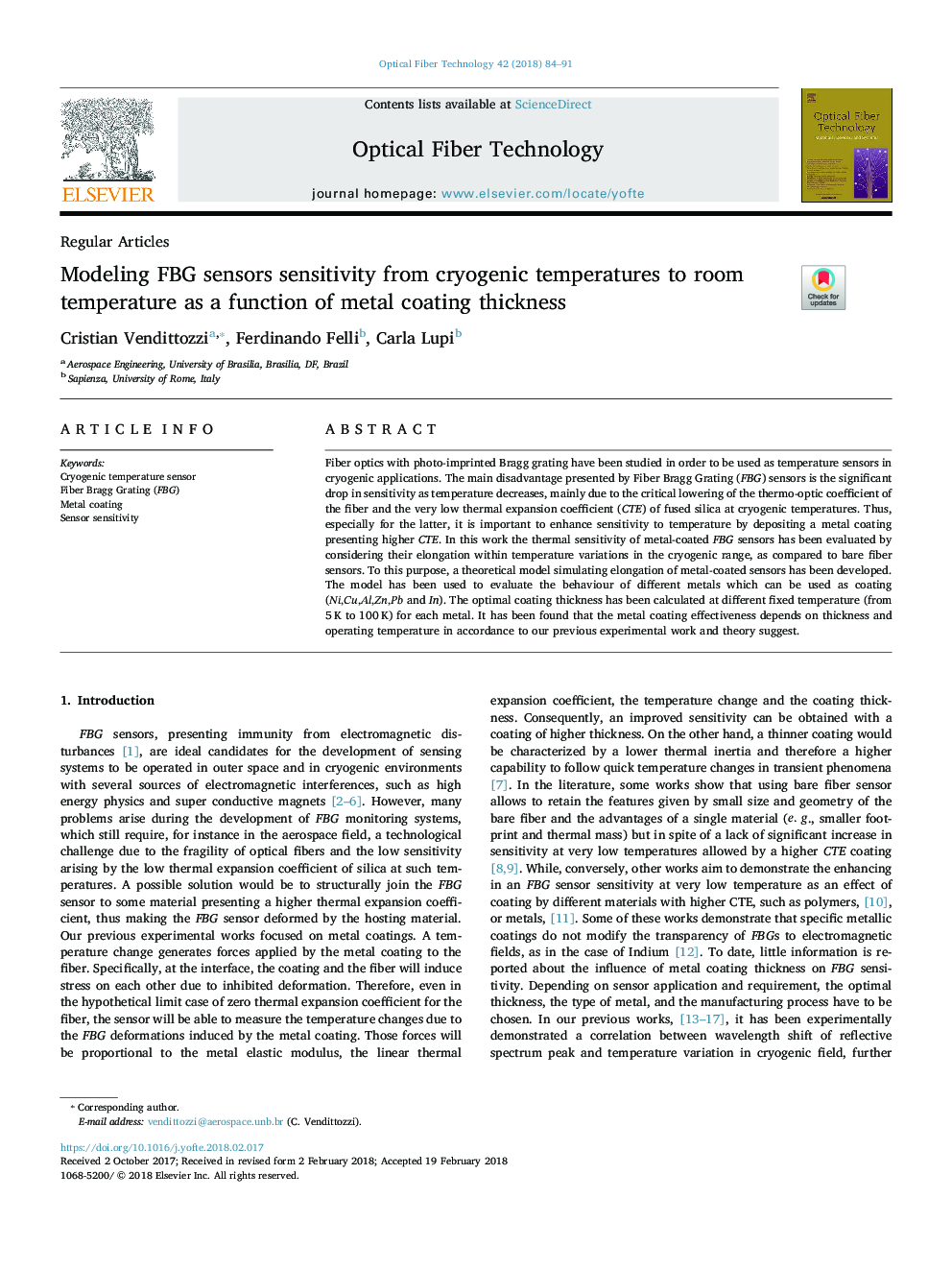| Article ID | Journal | Published Year | Pages | File Type |
|---|---|---|---|---|
| 6888301 | Optical Fiber Technology | 2018 | 8 Pages |
Abstract
Fiber optics with photo-imprinted Bragg grating have been studied in order to be used as temperature sensors in cryogenic applications. The main disadvantage presented by Fiber Bragg Grating (FBG) sensors is the significant drop in sensitivity as temperature decreases, mainly due to the critical lowering of the thermo-optic coefficient of the fiber and the very low thermal expansion coefficient (CTE) of fused silica at cryogenic temperatures. Thus, especially for the latter, it is important to enhance sensitivity to temperature by depositing a metal coating presenting higher CTE. In this work the thermal sensitivity of metal-coated FBG sensors has been evaluated by considering their elongation within temperature variations in the cryogenic range, as compared to bare fiber sensors. To this purpose, a theoretical model simulating elongation of metal-coated sensors has been developed. The model has been used to evaluate the behaviour of different metals which can be used as coating (Ni,Cu,Al,Zn,Pb and In). The optimal coating thickness has been calculated at different fixed temperature (from 5â¯K to 100â¯K) for each metal. It has been found that the metal coating effectiveness depends on thickness and operating temperature in accordance to our previous experimental work and theory suggest.
Related Topics
Physical Sciences and Engineering
Computer Science
Computer Networks and Communications
Authors
Cristian Vendittozzi, Ferdinando Felli, Carla Lupi,
